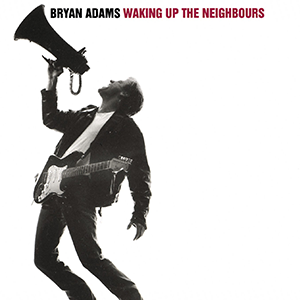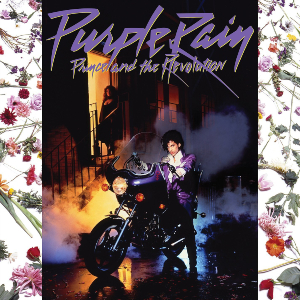
The Electric Light Orchestra (ELO) are an English rock band formed in Birmingham in 1970 by songwriters and multi-instrumentalists Jeff Lynne and Roy Wood with drummer Bev Bevan. Their music is characterised by a fusion of pop and classical arrangements with futuristic iconography. After Wood's departure in 1972, Lynne became the band's sole leader, arranging and producing every album while writing nearly all of their original material. From this point until their first break-up in 1986, Lynne, Bevan, and keyboardist Richard Tandy were the group's only consistent members.

Jeffrey Lynne is an English musician, singer-songwriter and record producer. He is the co-founder and currently the sole member of the rock band Electric Light Orchestra (ELO), which was formed in 1970, and as a songwriter has written most of the band's hits, including "Evil Woman", "Livin' Thing", "Telephone Line", "Mr. Blue Sky", "Don't Bring Me Down" and "Hold On Tight".

The Goo Goo Dolls are an American rock band formed in 1986 in Buffalo, New York, by guitarist/vocalist John Rzeznik, bassist/vocalist Robby Takac, and drummer George Tutuska.

Waking Up the Neighbours is the sixth studio album by Canadian singer-songwriter Bryan Adams, released on September 24, 1991. The album was recorded at Battery Studios in London and The Warehouse Studio in Vancouver, mixed at Mayfair Studios in London, and mastered by Bob Ludwig at Masterdisk in New York City.

Roy Wood is an English musician, singer and songwriter. He was particularly successful in the 1960s and 1970s as member and co-founder of the Move, Electric Light Orchestra and Wizzard.

Richard Theodore Otcasek, known as Ric Ocasek, was an American musician, singer, songwriter, and record producer. He was the primary vocalist, rhythm guitarist, songwriter, and frontman for the American new wave band the Cars. In addition to his work with the Cars, Ocasek recorded seven solo albums, and his song "Emotion in Motion" was a top 20 hit in the United States in 1986.

Candy-O is the second studio album by American new wave band the Cars, released on June 13, 1979, by Elektra Records.

Purple Rain is the sixth studio album by the American singer, songwriter, producer, and multi-instrumentalist Prince. It was released on June 25, 1984, by Warner Bros. Records as the soundtrack album to the 1984 film of the same name. Purple Rain was musically denser than Prince's previous albums, emphasizing full band performances, and multiple layers of guitars, keyboards, electronic synthesizer effects, drum machines, and other instruments.

Benjamin Orr was an American musician best known as the bassist, co-lead vocalist, and co-founder of the new wave band the Cars. He sang lead vocals on several of their best-known songs, including "Just What I Needed", "Let's Go", "Moving in Stereo", and "Drive". He also had a moderate solo hit with "Stay the Night".

Corey Mitchell Hart is a Canadian singer, musician and songwriter known for his hit singles "Sunglasses at Night", "Never Surrender" and "It Ain't Enough". He has sold over 16 million records worldwide and recorded nine US Billboard Top 40 hits. In Canada, 30 of Hart's recordings have been Top 40 hits, including 11 in the Top 10, over the course of over 35 years in the music industry. Nominated for the Grammy Award for Best New Artist in 1984, Hart is an inductee of both Canadian Music Hall of Fame and Canada's Walk of Fame, and is also a multiple Juno award nominee and winner, including the Diamond Award for his best-selling album Boy in the Box. He has also been honoured by the American Society of Composers, Authors and Publishers (ASCAP) and the Society of Composers, Authors and Music Publishers of Canada (SOCAN).

Martha Elaine Wash is an American singer-songwriter, actress, and producer. Known for her distinctive and powerful voice, Wash first achieved fame as half of the Two Tons O' Fun, along with Izora Armstead, as they sang backing vocals for the disco singer Sylvester including on his signature hit "You Make Me Feel ". After gaining their own record deal, they released three consecutive commercially successful songs which all peaked at number two in the dance charts. The duo was renamed The Weather Girls in 1982 after they released the top-selling single "It's Raining Men", which brought them to mainstream pop attention. The Weather Girls released five albums and were heavily featured on Sylvester's albums.

Roy Thomas Baker is an English record producer, songwriter and arranger, who has produced rock and pop and songs since the 1970s.

Beverley Bevan is an English rock musician who was the drummer and one of the original members of the Move and Electric Light Orchestra (ELO). After the end of ELO in 1986, he founded ELO Part II.

Fire and Water is the third studio album by English rock band Free, released in 1970. It became the band's breakthrough album, achieving widespread commercial success as the band's first two studio albums were not successful. With the "tremendous" acclaim of Fire and Water at their backs, in the words of AllMusic, Free headlined the 1970 Isle of Wight Festival with an estimated audience of 600,000 to 700,000 attendees and "appeared destined for superstardom".

Move is the debut album by British rock group the Move, released in March 1968 through Regal Zonophone Records. The album features ten Roy Wood compositions, along with three covers which had been a prominent part of the group's live act. Although scheduled for an earlier release, the album was delayed by the theft of the master tapes, which led to the tracks needing to be re-recorded. The album was sporadically recorded between January 1967 and February 1968 at Advision, De Lane Lea and Olympic Studios in London, during gaps in their tight recording schedule when the group were not booked for any performances.

Boulders is the debut solo album by English musician Roy Wood, recorded from 1969 to 1971 and released in July 1973 by Harvest Records. Wood began work on the album as a whimsical side-project away from his band the Move, and conceived it to explore numerous instruments he had collected in the 1960s but felt unable to use in the Move. Nonetheless, its release was delayed for several years due to his busy schedule with the Move, Wizzard and the Electric Light Orchestra. Apart from harmonium on one song played by John Kurlander, all the instruments on the album, including guitars, cello, saxophones, bouzouki, banjo and recorders, were played by Wood, who also wrote, arranged, and produced the whole record, in addition to providing all the vocals. The musician also painted the unfinished self-portrait on the cover.

"Tears Don't Fall" is a song by Welsh heavy metal band Bullet for My Valentine. It is the band's fourth single from their first full-length studio album, The Poison. The single was released on 17 June 2006 through Trustkill Records in the US. The song won the Kerrang! Award for Best Single. The song peaked at No. 24 on the Hot Mainstream Rock chart and No. 32 on the Alternative Rock chart. In 2013, the band released a sequel to the song called "Tears Don't Fall " on their fourth studio album, Temper Temper.

"I'm on Fire" is a song written and performed by American rock performer Bruce Springsteen. Released in 1985, it was the fourth single from his album Born in the U.S.A.
"Cherry Blossom Clinic" is a song by British rock band The Move, written by their lead guitarist, vocalist, and primary songwriter Roy Wood, intended as the follow-up single to their hit "Flowers in the Rain", which reached number two in the Record Retailer chart. Like many of Wood's other songs, "Cherry Blossom Clinic" deals with clinical insanity and loneliness, and makes several pop culture references throughout, which he largely credits to an ambition for writing a children's book. The track was initially recorded in August 1967 at Advision Studios, but was abandoned for three months before being re-recorded in November of that year, and lacks a production credit.
"Oh What a Shame" is a 1975 single, which was written and produced by Roy Wood. Wood played all of the musical instruments on the recording, as well as supplying lead and multi-tracked backing vocals. The song was jointly globally published by Carlin Music Corp and Roy Wood Music.


















